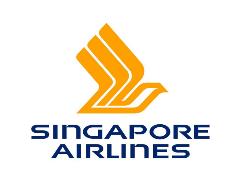The International Air Transport Association (IATA) forecasts 7.2 billion passengers to travel in 2035, a near doubling of the 3.8 billion air travellers in 2016.
But even though more and more people are flying each year, the airline industry is immensely competitive. Besides being susceptible to intense price competition, volatile fuel prices, unpredictable weather conditions and safety concerns, the sector is no exception to the digitalisation trend.
To maintain a competitive edge in the digital economy, our national carrier, Singapore Airlines (SIA), is looking into significantly boosting digital capabilities in its employees. On 30 August 2017, SIA Chief Executive Officer, Mr. Goh Choon Phong, and other members of the senior management team participated in a workshop titled "An Agile, Innovative & Data-driven Workforce", facilitated by NUS-ISS.
The workshop comprised three tracks in Agile Capability, Data Analytics and Innovation with Design Thinking respectively. It was made up of multiple courses, majority of which were accredited under the National Infocomm Competency Framework (NICF).
Mr. Khoong Chan Meng, CEO of NUS-ISS, together with the practice & programme chiefs at NUS-ISS led discussions on these digital skills and how they can be leveraged for critical business processes in a technology-driven environment. The content of the workshop was contextualised to the airlines industry to ensure that the knowledge taught was relevant and applicable to the participants.
 The training effort was part of an enterprise-wide SIA Future@Work suite of programmes, launched last August by SIA's Corporate Learning Centre (CLC). "In the face of constant disruption and innovation, and the advent of big data and data analytics in driving business performance, these programmes aim to equip [SIA's] workforce with new skills and mindsets to enable [the airline] to compete effectively," according to SIA's internal newsletter on the training.
The training effort was part of an enterprise-wide SIA Future@Work suite of programmes, launched last August by SIA's Corporate Learning Centre (CLC). "In the face of constant disruption and innovation, and the advent of big data and data analytics in driving business performance, these programmes aim to equip [SIA's] workforce with new skills and mindsets to enable [the airline] to compete effectively," according to SIA's internal newsletter on the training.
Navigating the digital skies
The skills necessary for business success in a digital economy are very different from those required of the previous industrial revolutions. The workshop conducted by NUS-ISS aimed to equip the SIA executives with practical insights and applications to stay ahead in a rapidly changing landscape.
Agile methodology refers to a group of product or service development methodologies based on iterative development in 'sprints'. Requirements and solutions evolve through collaboration between self-organising, cross-functional teams. This accelerates the delivery of initial business value and allows the product or service to be tweaked in response to feedback. In this way, value is continuously maximised throughout the development process.
"I think the concept is very helpful - particularly in today's context where flexibility and fluidity while having a core business purpose is key," said one of the participants, Tan Mei Xuan, Cabin Crew Executive (Standards & Service Performance) at SIA. Another attendee, Tammy Boey, Assistant Manager (Special Projects) also commented that the agile method "cuts away a lot of red tape and mounds of paperwork, while still producing quality solutions/products".
The other important area which SIA is looking into, is data analytics. The millennials have approached their prime spending years and are now the most important consumer generations across industries. They demand customised experiences and services, which means that a "one-size-fits-all" approach no longer works. At the launch of SIA's Digital Innovation Blueprint earlier this year, Mr. Goh explained that "instead of sending out a mass email...we can be a bit more targeted in offering what our customers want, based on their travel patterns in the past".
SIA is also leveraging data analytics in its recruitment process to hire staff who are "more attuned" to passenger service. "[The workshop by NUS-ISS] was a very good introductory course on business data analysis. It helps create awareness and promote the mindset shift to data-driven decision making in t he organisation," said Chen Xiaoming, Assistant Manager Contract, SIA.
Lastly, design thinking - which is a human-centred approach to innovation that draws from the designer's toolkit - is a crucial part of any digital transformation project. It integrates the needs of the people, the possibilities of technology and the requirements of the customer's journey for business success. "I learned a more disciplined approach to design and innovation," enthused Ong Hui Hui, Customer Affairs Manager, SIA. "I have always done it intuitively, so I am glad I now know a more structured approach."
Empowering employees to take the lead in innovation
In the digital economy, talent is the most important resource of a company. Besides supporting employees through digital training and upskilling, SIA has also been progressively building an open innovation culture across the organisation through staff involvement in digital projects.
A Digital Innovation Lab is being set up to enable staff to work with start-ups, incubators and accelerators, to explore new ideas and collaborate in a creative environment, SIA said in a statement. Employees across the SIA Group are encouraged to submit proposals that would help boost efficiency in the company's operations.
By empowering employees to take the lead in innovation, SIA is taking proactive steps to conquer the turbulent digital transformation skies and emerge as the leading digital airlines.
This article is repurposed with permission from the article "New-economy skills with Future@Work series", published in Singapore Airlines' internal newsletter.